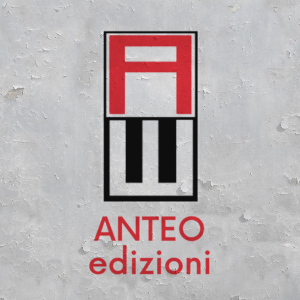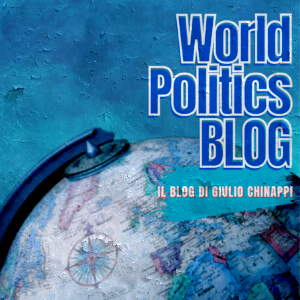by Silvia Boltuc
In November 2020 Belarus inaugurates the new Astravyets nuclear power plant built in collaboration with Russia. During the opening ceremony, Belarus President Alexander Lukashenko stated that the nuclear power plant marked the beginning of a new era for the country. Although the Baltic republics raised concerns over the Astravyets’ security, nowadays the nuclear power plant (hereinafter NPP) is operational and is preparing to cope with growing domestic energy demand and external supply demands.
Astravyets is the first NPP in Belarus and one of the infrastructures that the government has decided to build according to the country’s climate policies. On the one hand, the Belarus Government would like to stabilize and improve the national economy and meet domestic energy needs. On the other hand, Minsk aims at applying ecological policies to reduce the environmental impact of the country’s energy industry.
In this context, since Belarus has relations with major international players such as Russia and China, the country has become an indispensable partner in the Eurasian energy market. I met the representatives of the Belarusian Ministry of Energy (Minenergo) to broadly discuss the Belarus energy market and strategy.
The construction of the Astravyets NPP might be considered a significant step in the Belarus climate change policies. Could you tell us more about Belarus future energy policies?
“As part of the implementation of the Paris Climate Agreement adopted in December 2015, the Republic of Belarus has committed itself to reduce greenhouse gas emissions by at least 28% by 2030 compared to the 1990 level. The strategic objective is to achieve a higher quality of environmental protection by providing the population with living conditions that respect ecological standards, to promote the solution of regional and global environmental problems and sustainable national social and economic development. Energy is the main sector of the country’s economy and society. Our national energy policy aims to define pathways and to develop mechanisms to ensure the security of the State, the more efficient use of energy resources and the reduction of environmental impact.
Minenergo has implemented several strategic programs aimed at reducing environmental impact, including reducing greenhouse gas emissions in atmospheric air by 6.92 million tons of carbon dioxide equivalent (MMTCDE) per year, according to the following points:
- construction of the Belarusian nuclear power plant.
- updating existing generation structures with the commissioning of new high-efficiency generation capacities.
- dismantling of inefficient self-depreciated generating plants.
- to provide energy installations with automated control systems or on pollutant emissions from the atmosphere.
Significant work has been done in recent years to increase the use of renewable energy, E.g. the construction of the Grodno Hydropower Plant (17 MW), the Polotsk Hydropower Plant (21.66 MW), the Vitebsk Hydropower Plant (40 MW) and the Grabniki wind farm (9 MW). The project to produce electricity from the recycling of Minsk municipal solid waste is currently being developed.”
The governments of Estonia, Latvia and Lithuania have issued a joint statement against the Astravyets Nuclear Power Plant. The Baltic republics have also asked the European Union to ban electricity imports from the Belarus NPP as part of EU-China investments. If the Baltic countries will achieve in their mission to close the European market to Belarus energy exports, is there the risk/possibility that the Russian Federation might become the only possible future energy buyer?
“Estonia, Latvia and Lithuania’s declaration does not affect the reliability of the Belarusian electricity grid. The Belarusian Government had foreseen and understood Vilnius’ position which respects the Lithuanian national law adopted more than three years ago (Law of the Republic of Lithuania of 20 April 2017 N° XIII-306 “On the adoption of the necessary measures to protect against threats”). This law requires officials authorized by Lithuania to take measures to prevent third countries from entering the national energy market through the production of nuclear power stations which are not considered safe. For this reason, in November 2020, after the 1st Unit of the Astravyets NPP started working, the Baltic republics decided to close the ‘Belarus – Lithuania’ trade section of the Nord Pool market and, at the same time, they opened the trade section ‘Russia – Latvia’.
However, currently, electrical communications (interstate transmission lines) between Belarusian and Lithuanian supplies remain connected and preserved, as the power systems of the Baltics work in parallel with those of Belarus and Russia within the Elektricheskoe kol’co Belarusi, Rossii, Estonii, Latvii i Litvy (Electric ring Belarus-Russia-Estonia-Latvia-Lithuania). Thus, for the period November 2020 to January 2021, the volume of electricity flow traded was more than 870 million kWh (more than 870 GWh) or about three weeks of electricity consumption in Lithuania in January 2021.
As part of the ongoing work on the formation of a legal basis for the launch and operation of a common electricity market in the Eurasian Economic Union (EEU), Belarus will continue consultations with the European Commission on the legal regulation of the parallel operation of the energy systems of the Member States of the European Union (Baltic States) with the energy systems of those countries which are not members of it (the Member States of the European Economic Union). The Belarus Government believes that these consultations, with the procedure for the contractual formalization of these energy flow towards the Baltic States, will clarify the situation. The issue of the unilateral closure by the Baltic States of the Belarus-Lithuania trade section of the Nord Pool market will also be clarified since the Lithuanian Government based its decision solely on political consideration without assessing the regulatory impact on the final consumers of electricity in the Baltic States.
Furthermore, we believe that the implementation of the Astravyets NPP does not rely on the need to solve the national problem of exports of electricity produced because this infrastructure was constructed to meet the demand of Belarus economy and population while capacities are used to export electricity to the energy system.
At the same time, the Belarusian energy system undoubtedly has export potential in terms of generation capacity and its electricity grid is connected not only to the Lithuanian energy system but also to the energy systems of Ukraine and Russia.
It should also be pointed out that economic circles in the Baltic states are generally interested in mutually beneficial cooperation with Belarus in the electricity trade and several companies have contacted the state-owned company Belenergo demonstrating their interest in buying Belarusian electricity.
From our point of view, the possibility of diversifying the purchase of electricity (from EU countries, Belarus, Russia) is beneficial to consumers of the Baltic states because it creates competition and contributes to decrease the market prices and, consequently, the cost of production for companies in the sector. Also, it can be said that Lithuania took advantage of these conditions before the closure of the Belarus-Lithuania trade section of the Nord Pool market, as this trade section was the Belarusian and Russian anchor point in the Baltic trading platform.
In Ukraine, as part of the measures taken in support of its electricity producers, restrictive measures are periodically introduced on the import of electricity from Belarus. At the same time, Ukrainian business circles remain interested in mutually beneficial cooperation with Minsk in the electricity trade.
As far as Moscow is concerned, due to the surplus of the Russian energy system, the export of Belarusian electricity in this direction is being negotiated. “
Since Belarus is part of Beijing’s Belt and Road Initiative, could China influence the Baltic republics to change their behaviours towards Belarus?
“In 2013 the Chinese President Xi Jinping proclaimed the One Belt, One Way Initiative. According to the experts, today the states of almost all regions of the world and the various international organizations are involved in the implementation of infrastructure and investment projects under the Belt and Road Initiative (BRI), also known as the New Silk Road.
Belarus was among the first countries in the world to support the Chinese leader’s initiatives because the country offers some benefits for the development of the New Silk Road such as a reliable and modern national electric power industry.
The media have repeatedly stated that the Chinese-Belarus Great Stone Industrial Park in Belarus will become the pearl of the BRI. The governments of the two countries have signed a series of documents to jointly promote the New Silk Road, which will include activities and projects not only in the fields of transport, logistics, industry, and investment, but also in the fields of information, communication technologies, and humanitarian cooperation. At the same time, the Great Stone Industrial Park is expected to become a kind of incubator of new ideas, a leading platform to organize an efficient production process within the BRI.
The Belarusian energy system is ready to meet the electricity demand of both the Great Stone Industrial Park and other investors, including residents of the Free Economic Zones. In the medium term, the Government will pay attention to the development of the country’s electricity grid complex which will make the national electricity system more reliable and convenient for investors interested in our market.”
Does the Belarusian energy sector benefit from the agreements signed within the Eurasian Economic Union in terms of the common electricity market?
“The Eurasian Economic Union (EEU) was created under the Treaty of 29 May 2014. This organisation aims at ensuring the free movement of goods and services and the implementation of a coordinated, coherent or unified policy in various sectors of the economy, including energy. At present, the EEU includes Armenia, Belarus, Kazakhstan, Kyrgyzstan, and the Russian Federation.
In mid-2019, the EEU members signed the Convention on the Common Electricity Market which defines the legal framework and principles for the formation, operation and development of the common market, establishes regulatory areas and also authorizes the Intergovernative Council and the Commission Council to approve the acts established in the document.
One of the fundamental principles of the EEU Common Electricity Market is cooperation based on equality, mutual benefit, and non-economic damage to any member state. The parties involved in writing the rules of the EEU Common Electricity Market made outstanding work to study the characteristics of national legislation, the possibility of combining existing bilateral business experience, and the need to update international legislation within the framework of other legislations.
The creation of a common electricity market will make it possible to supply the required volumes of electricity on a competitive basis at a more favourable price.
The trade activity of Belarusian entities in the EEU Common Electricity Market will depend on the combination of several favourable factors, i.e.the cost of generating electricity in the power plants, the EEU electricity demand, energy prices in Belarus and the common market, the ability of the entrepreneurs in import-export operations at the initial state.”.
Silvia Boltuc is an analyst specialized in international relations, energy market, and conflicts in the post-Soviet republics, the Middle East, and North Africa Currently, she is running the Research Program ‘Eurasian Energy Market’ at ASRIE Analytica.













Il CeSE-M sui social